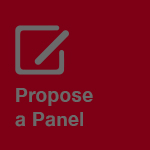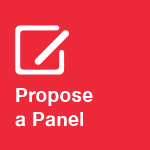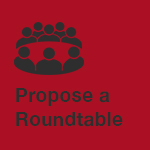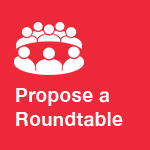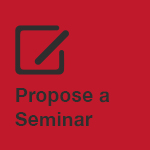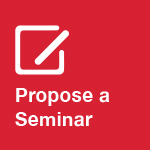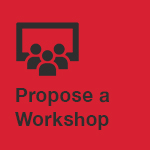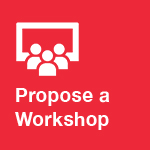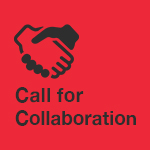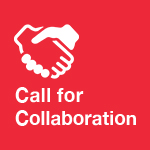
Overview
The Programme Committee of the 11th World Shakespeare Congress welcomes proposals for panels, roundtables, seminars, and workshops responding to the conference theme ‘Shakespeare Circuits’.
The trope of circuits draws attention to the passage of Shakespeare’s work between places and periods, agencies and institutions, positionalities and networks of production, languages and mediums. Topics may include, but are not restricted to:
The 2016 World Shakespeare Congress had 20 panels and roundtables, 46 seminars and workshops. Proposers for the 2021 Congress should be aware that there will similarly be more room on the 2021 programme for seminars and workshops than for panels and roundtables.
The Programme Committee specifically invites five types of proposals:
Members of the Programme Committee welcome enquiries and are happy to work with ISA members in crafting programme proposals. Contact:
Tom BISHOP: t.bishop@auckland.ac.nz
Ton HOENSELAARS: A.J.Hoenselaars@uu.nl
Bi-qi Beatrice LEI: biqilei@gmail.com
Lena Cowen ORLIN (Chair): orlin@georgetown.edu
YONG Li Lan: yonglilan@nus.edu.sg
For other questions about the 11th World Shakespeare Congress, contact:
Nick WALTON: nick.walton@shakespeare.org.uk.
Proposals must be submitted online below.
The deadline for all proposals is 1 July 2019.
The deadline for seminar and workshop proposals has been extended to 15 September 2019.
- Renaissance circuits: socio-cultural economies, ecologies, and performance practices
- Transmissions: textual transfer, translation, intermediaries
- Colonial and postcolonial Shakespeares and their intertwining
- Shakespeare in virtual networks, computing, and the digital humanities
- Intercultural, transnational, diasporic engagements
- Media, intermedial and cross-platform circulations
- Relationships among performances and texts over four centuries of afterlives
- Tracking and tracing: quotation, allusion, echo, revision, reference
- Circulations of identity and difference within or between plays and their appropriations
- Failures, distortions and blockages in transmission
- Nodal points and their relations: festivals, centres, exhibitions, venues, and archives
- Relations conducted via Shakespeare among broader historical events, eras, or periods
The 2016 World Shakespeare Congress had 20 panels and roundtables, 46 seminars and workshops. Proposers for the 2021 Congress should be aware that there will similarly be more room on the 2021 programme for seminars and workshops than for panels and roundtables.
The Programme Committee specifically invites five types of proposals:
Members of the Programme Committee welcome enquiries and are happy to work with ISA members in crafting programme proposals. Contact:
Tom BISHOP: t.bishop@auckland.ac.nz
Ton HOENSELAARS: A.J.Hoenselaars@uu.nl
Bi-qi Beatrice LEI: biqilei@gmail.com
Lena Cowen ORLIN (Chair): orlin@georgetown.edu
YONG Li Lan: yonglilan@nus.edu.sg
For other questions about the 11th World Shakespeare Congress, contact:
Nick WALTON: nick.walton@shakespeare.org.uk.
Proposals must be submitted online below.
The deadline for all proposals is 1 July 2019.
The deadline for seminar and workshop proposals has been extended to 15 September 2019.
Panels typically include three papers of approximately twenty minutes’ presentation time each, and may be chaired by a fourth person, who need not be specified by the organiser(s). Proposals should address the conference’s commitment to international diversity among the panelists.
Panel proposals should include:
1. The name(s) of the session organiser(s), with affiliation(s) as applicable and e-mail address(es).
2. The title of the proposed session.
3. A description of the objectives of the proposed session, ideally responding to the conference theme in some way. (The online submissions form allows for 2,500 characters including spaces.)
4. The names of each presenter or participant, with university affiliations as applicable, and e-mail addresses.
5. The title for and a brief description of each presentation or paper. (For each, the online submission form allows for 1,500 characters including spaces.)
6. Short biographical statements for the session organiser(s) and each presenter or participant. (For each person, the online submission form allows for 750 characters including spaces.)
Roundtables typically feature short statements on a given topic, followed by focused discussion by five to ten specified participants, conducted in an open public forum and chaired by a moderator. Proposals should address the conference’s commitment to international diversity among the roundtable participants.
Roundtable proposals should include:
1. The name(s) of the session organiser(s), with affiliation(s) as applicable and e-mail address(es).
2. The title of the proposed session.
3. A description of the objectives of the proposed session, ideally responding to the conference theme in some way. (The online submissions form allows for 2,500 characters including spaces.)
4. The names of each presenter or participant, with affiliations as applicable and e-mail addresses.
5. Short biographical statements for the session organiser(s) and each presenter or participant (For each person, the online submission form allows for 750 characters including spaces.)
Seminars are convened by at least two organisers from different national backgrounds, languages, or cultural traditions. The conveners set out the research agenda for a group of scholars who are assembled through an open-enrolment process. Each seminar member will contribute a written research paper of a specified length; advance work may also include assigned readings and other preparatory activities. At the conference, conveners guide the seminar discussion.
Seminar proposals should include:
1. The names of the seminar organisers, with affiliations as applicable and e-mail addresses.
2. The title of the proposed seminar.
3. A description of the objectives of the proposed session, ideally responding to the conference theme in some way. (The online submissions form allows for 2,500 characters including spaces.)
4. Short biographical statements for the session organisers, including any previous relevant experience with seminar direction. (For each person, the online submission form allows for 750 characters including spaces.)
Workshops are convened by at least two organisers from different national backgrounds, languages, or cultural traditions. These sessions typically bring together a larger group of participants to explore an issue in performance, pedagogy, criticism, or creative work. Advance work may involve readings, viewings, online discussions, shared syllabi, performances, and pedagogical and practical exercises. At the conference, workshops tend to have a looser format than seminars.
Workshop proposals should include:
1. The names of the workshop organisers, with affiliations as applicable and e-mail addresses.
2. The title of the proposed workshop.
3. A description of the objectives of the proposed session, ideally responding to the conference theme in some way. (The online submissions form allows for 2,500 characters including spaces.)
4. Short biographical statements for the session organisers, including any previous relevant experience with workshop direction. (For each person, the online submission form allows for 750 characters including spaces.)
Calls for collaboration are welcome for panels, roundtables, seminars, or workshops. In this case, one or more persons will propose a topic and solicit interested partners. For example, one person may seek a partner for directing a seminar or workshop; two or more persons may seek a third panelist; one or two persons may seek multiple roundtable participants. See current calls below, which contain the contact information of the caller(s) so that those responding can communicate with the caller(s) directly. When assembling a formal proposal, those issuing the call should consider the conference’s commitment to international diversity. The deadline for calls is 1 April 2019, to allow time for callers to assemble proposals that observe the regulations given above, as applicable to the specific format, in time for the proposal deadline of 1 July 2019.
Calls should include:
1. The name(s) of the caller(s) with affiliation(s) as applicable and e-mail address(es).
2. A title of the proposed program or event.
3. A description of the themes and objectives of the proposed session, ideally responding to the conference theme in some way. (The online submissions form allows for 2,500 characters including spaces.)
Click here to submit a call for collaboration.

